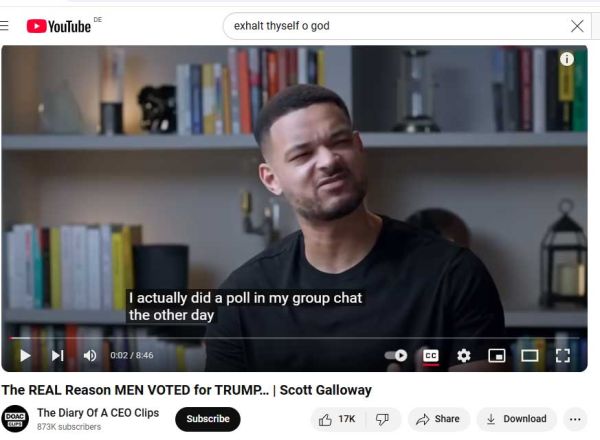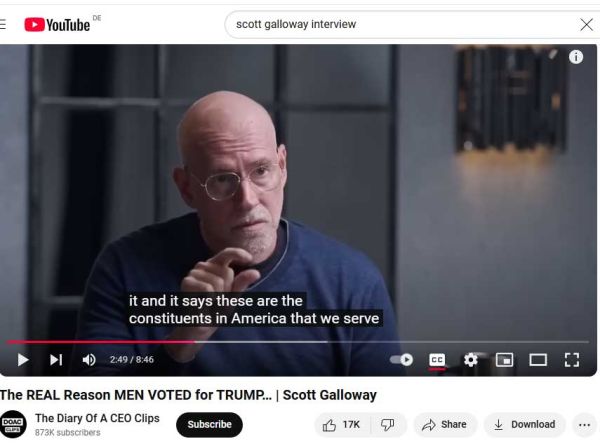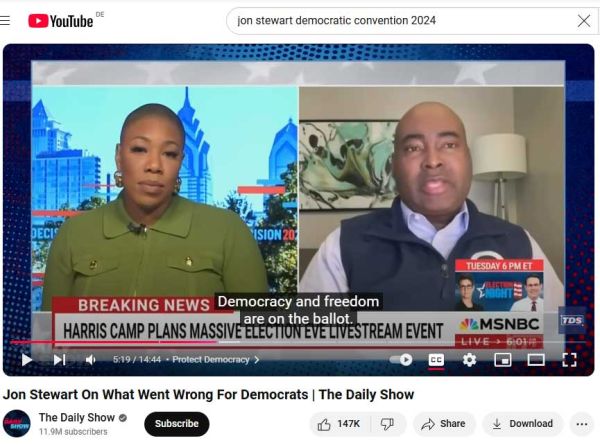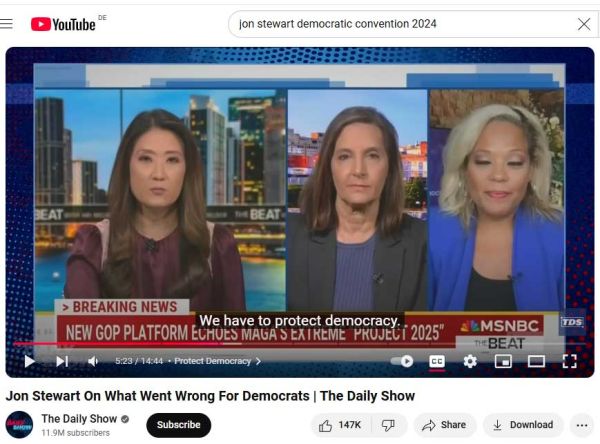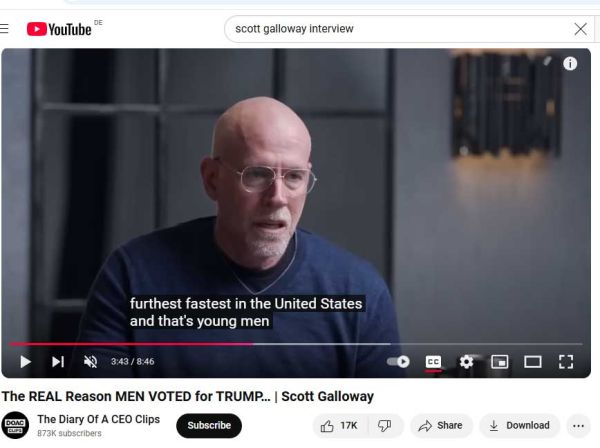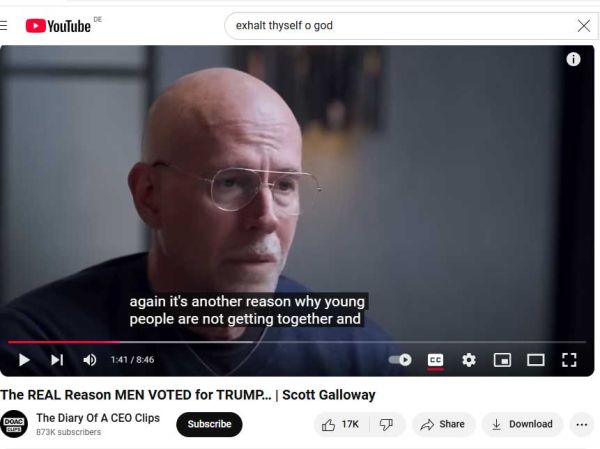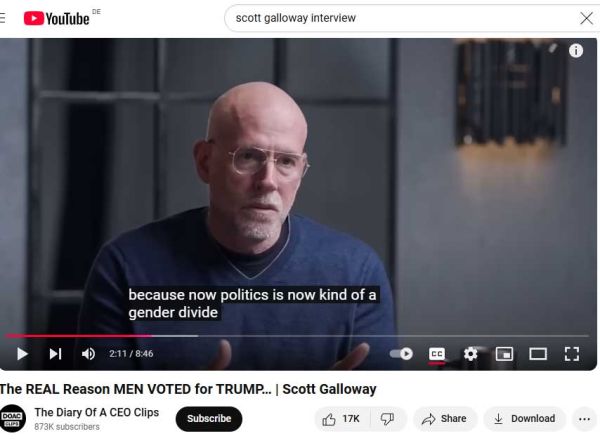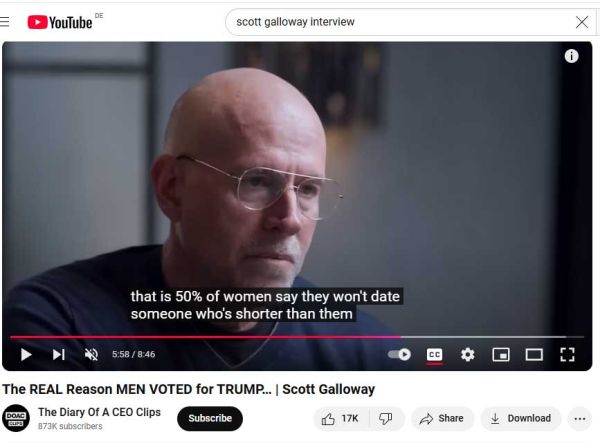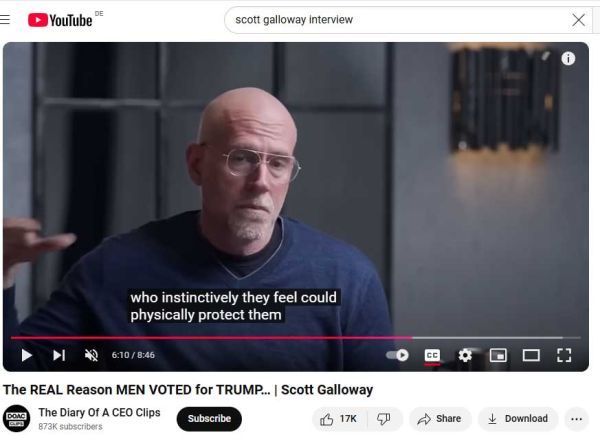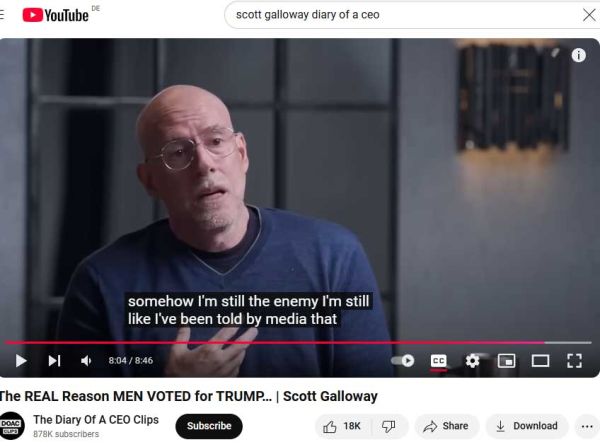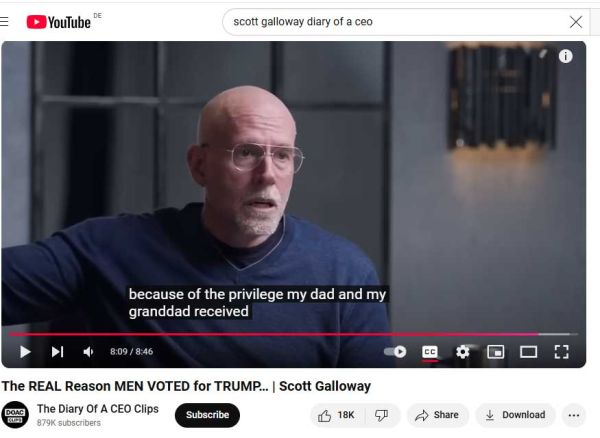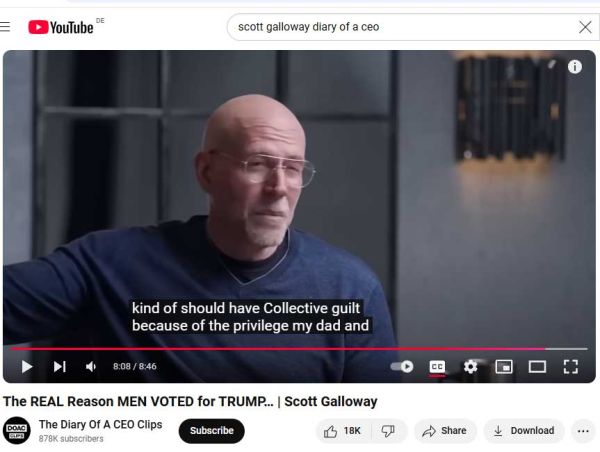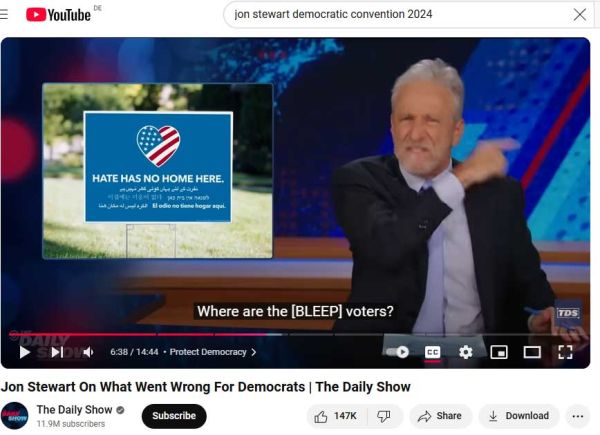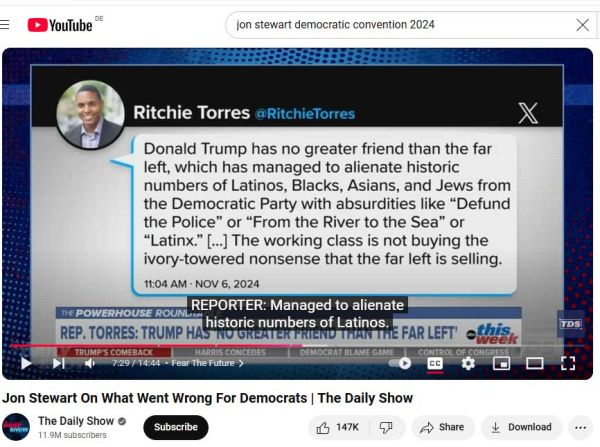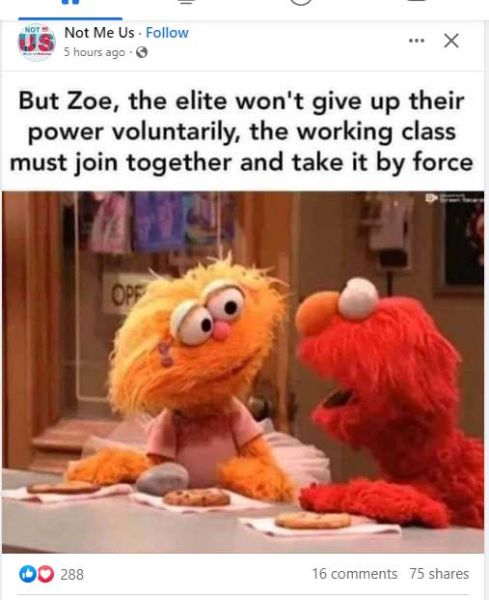Scott Galloway and the 2024 Election
On the same YouTube page as the Jon Stewart Daily Show video, I saw another video posted by a man I had never heard of named Steve Bartlett, a British on-line entrepreneur. His video concerned an interview with another man I had never heard of named Scott Galloway, a business professor at New York University, an entrepreneur, and writer.
During the interview, Bartlett told Galloway that four of the six males in his on-line chat group told him they planned to vote for Donald Trump in the 2024 Presidential Election. Galloway replied that this information did not surprise him. He said that the Democratic Party has publicized its support of sixteen to seventeen constituencies, most of them already well-known to my readers: Gays and Lesbians, Minorities, Feminists, and labor groups; and promotes tolerance and diversity as the two directional buzz-words.
Nowhere did the Party leaders say anything about young men. As a consequence, young men feel that they have no place in the Democratic Party. In the interview, Galloway mentioned the "parade of demographic groups" at the Democratic Convention. Missing from the parade was the one group that has "fallen further fastest", young men. He said that young men account for most of the opioid addicts, the most suicides, the most homeless, and the group most often incarcerated.
Galloway then said something that had been on my mind for some time, that America's political division has transitioned into a gender divide—not racial or economic. The two sexes, supposedly the foundational relationship of the species, have grown apart. Men voted for Trump, for confirming masculinity as an asset; women voted for Harris, for her stance on women's issues, on diversity and inclusion, and for her loyalty to former President Biden.
The public image of the modern woman, says Galloway, shows her at her independent best, and not needing a man to make her happy or to protect her. She can do fine on her own without his trying to control her—forging her own path with a high-end job, cosmopolitan instincts, social finesse, and the common support systems of the nation.
But contradicting this stance, he continues, women prefer to marry a man taller than they. They do not want a man who cannot protect them, or establish a secure environment for a wife tending to the needs of small children. For that, she wants a strong man who can make money, control his domain, and allow her to live comfortably; in other words, the opposite of the woman who said she wants to live independently. This seeming contradiction drives men away.
Galloway also complains that the media communicates to women that the male is "still the enemy", and that "privileged" males should feel "collective guilt". I agree with him that Americans have to reckon with a gender divide. The divide also involves the conflicting priorities of the two political parties. But really, any kind of division hurts the ability of America to respond to emergencies or a threat from abroad.
So, a few questions remain:
1. Is the political division in America strong enough to cause harm to the functions of the nation? The answer, of course, is yes. It is harming the nation as we speak, and the signs are everywhere to see. Look at the effect of the division on social media. The wishful thinking for a violent upheaval suggests that the bloggers are waiting for the right person to organize them.
2. Should Americans accept the division and conflict as the God-ordained thorn in our side, as something we just have to accept, or should we do something to resolve it?
3. What else can we do but divide the Disunited States and create new countries from the dysfunctional old one? Can the two Parties, Republican and Democrat, tolerate parting ways? Probably not— not yet, anyway. The political divisions don't impact us immediately; so we just tolerate a toxic relationship controlled by existential angst: "I hate you! Don't leave me!"
We need to do something. The problems caused by the division will reappear just four short years from now. This election was bad enough, as bad as any I have experienced. We need to realize that if we don't do something, someone else less desirable will.

